Odfjell Completes Terminal Expansion in Houston

Odfjell Terminals US (OTUS) reports it has completed the construction and commissioning of its Bay 13 at the Houston Terminal (OTH), adding nine new tanks, with a combined capacity of 204,000 barrels. The new tanks are a combination of stainless steel and carbon steel, and each tank has been engineered with positive pressure systems and full automation, Odfjell said. The newly commissioned bay is specifically designed for the storage needs of specialty chemical products, the company added."As we continue to invest in our assets…
New Fuel Supply System Set to Ease Ammonia Adoption by Shipping Industry
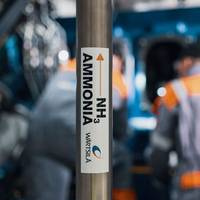
Wärtsilä Gas Solutions, part of technology group Wärtsilä, has introduced a new ammonia fuel supply system (AFSS) for ships able to operate with ammonia fuel.The system is available for both liquid and gaseous fuel, enabling the use of ammonia as a marine fuel, according to Wärtsilä.In line with shipping’s transition to decarbonized fuels, ammonia is widely seen as one of the most promising new fuel candidates. It offers a huge reduction in CO2 emissions, almost zero sulphur oxide (SOx) emissions…
What Does Climate Change Mean for Extreme Waves?
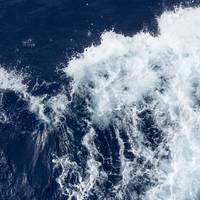
In 80% of the world, we don’t really know.Across much of the world’s oceans, waves are getting bigger. In the Southern Ocean, where storm-driven swell can propagate halfway across the world to California, the average wave has grown about 20cm in the past 30 years.These changes are part of climate change, and are likely to continue well into the future. If you’re making long-term plans near the sea – like building ships, or constructing flood defenses in coastal cities – you need more detail about how big those waves are going to get.In a study published this week in Science Advances…
Envoy Acquires Avantis Marine
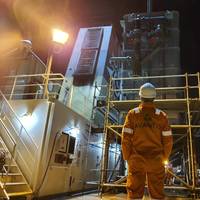
UK-based Envoy Group has acquired a marine engineering company, Avantis Marine, to target carbon reduction and clean energy solutions for offshore markets.Avantis specializes in marine engineering with a focus on environmental performance and clean technologies for the shipping, oil and gas and passenger transport markets. The business is headquartered in the Marshall Islands, and operates from bases in the UK, Monaco, Dubai, Singapore and Miami. Iain MacGregor, CEO of Envoy, a 2019 spin-off from oilfield service company Global Energy Group…
NATO RV Alliance is not just quiet, it’s ice-capable
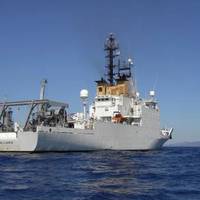
An interview with Ian Sage, director for marine operations, NATO Center for Maritime Research and Experimentation, La Spezia, Italy.NATO’s 3,100-ton, 305-foot research vessel NRV Alliance has been a leading platform for underwater acoustics research to the benefit of NATO navies. The ship operated with a civilian crew under the German flag for many years for the NATO SACLANT Center, later renamed the NATO Undersea Research Center, and now known as the NATO Center for Maritime Research and Experimentation. Now Alliance flies a new flag, and has a broader mission.
Safety and Preparation on the Brownwater Radar
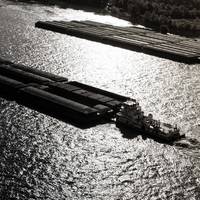
Weather Channel Forecasters are predicting a “near-average” hurricane season for 2016, but warn that an average season does not mean businesses and residents shouldn’t prepare for the worst. While it is unclear whether the season, which began June 1, will bring about a few mild storms or a catastrophic Category 5 hurricane, one thing is for sure: safety and preparation are on the radars of the owners and operators of brownwater vessels. Although forecasters consider this year’s predicted 12 named storms “average”…
Passage to the High North – When Spray Matters

Why bother about a bit of spray? In mild climate latitudes rain and spray water is hardly a concern; it will run off and the ship happily carries on. But going to the High North it’s different. With the economic development of the High North and Arctic areas, partly driven by the reduced ice conditions and partly by opportunities to develop oil and gas and scarce mineral resources, maritime operations in these areas are booming. But safety of the environment, crew and their ships is of prime concern. In the Arctic, global warming doesn’t mean milder conditions.
Thome Signs Safety Service Agreement with WSS
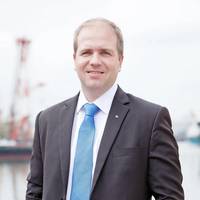
Singapore-based Thome have signed a Safety Service agreement with Wilhelmsen Ships Service (WSS). Harald Lundestad, General Manager for WSS in Singapore said: “Companies such as Thome have to balance the logistical demands of managing a large and diverse fleet trading worldwide with the challenge of keeping vessels compliant. WSS safety service technicians carry out services on a wide range of safety, firefighting and rescue equipment such as CO2 high-pressure systems, portable fire extinguishers…
Common-rail Injection for Sub-110hp Marine Diesels
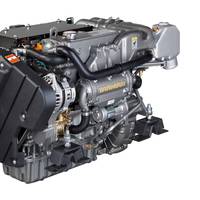
The new JH-CR series engines from Yanmar bring the benefits of common-rail fuel injection technology to units of below 110mhp. Boat owners can now choose digitally-controlled common-rail engines from the Yanmar range with power outputs starting as low as 45mhp.The company will launch the new engines at Boot Düsseldorf 2015, with immediate availability through its worldwide distributor network. "Ever since the early 2000s, diesel engine manufacturers have been using common-rail fuel injection to meet ever-tighter emissions regulations…
Improve Chances of Survival When Abandoning Ship
The NTSB recently investigated an accident that required the crew to abandon a weather-damaged liftboat in near-hurricane-force conditions. The company hurricane plan did not account for rapidly and locally developing low pressure weather systems. This reduced the crewmembers’ ability to properly plan for the developing storm and to make an early decision to leave the vessel through routine means before the onset of the storm. The vessel had recently been equipped with two new inflatable throw-over-type liferafts. However, the liferafts were inflated on deck instead of in the water when the crew prepared to abandon the vessel. This led to the liferafts blowing away from the vessel and vanishing in the high winds and seas.
20 Seconds to Comply ...
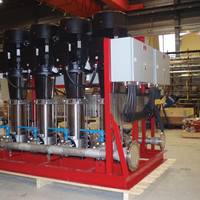
Alternatives to Carbon Dioxide fire suppression systems can provide the performance without the activation delay according to Kristin Øgaard of Norway’s Autronica Fire and Security AS. With the phase out for environmental reasons of fire suppression systems using Halon gas starting in 1994, the use of Carbon Dioxide (CO2) as a fire suppressant has become typical both on land and at sea. Today, CO2 fire suppression systems can be found in engine rooms and cargo areas on board…
DNV Introduce Seismic Vessel Notation
DNV has developed a class notation for seismic vessels in consultation with key industry players, WesternGeco, PGS and Fugro-Geoteam. The need to have enhanced redundancy and proper deck arrangements to ensure continuous operation without loss of speed is the backbone of these new technical requirements. Seismic vessels contain high end computerized technology to find resources below the seabed, and represent a key element in the value chain leading to future offshore field developments. Any interruptions in the ships forward movement can complicate the seismic data processing, and continuous operations with focus to avoid any downtime of key functions are hence of utmost importance.
The Arctic: Economic Promise or Environmental Peril?
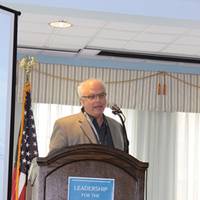
The fervor to move shipping routes and energy business north of the Arctic Circle is palpable, as countries with physical connection and even ‘non-Arctic’ states are making moves and plans to stake claims to the vast potential that lies within. While the maritime and subsea technology allowing ops in the Arctic’s harsh environs has moved forward fast, there are repeated and regular ‘warning shots across the bow’ of budding entrepreneurs large and small, as the Arctic environment is still largely undeveloped territory, representing risky operations for even the heartiest of souls.
Products
U.K.-based EJ Bowman has manufactured its range of marine heat exchangers and oil since 1919. The company recently had its range of hydraulic EC to PK shell and tube oil coolers design approved for marine use by the American Bureau of Shipping (ABS) and now hold certificate no. 02-LD302798-PDA. Bowman heat exchangers and oil coolers are suitable for use on engines up to 1,400 kW (1,880 hp) and for gear boxes up to 1,800 kW (2,400 hp). As a result of this design approval EJ Bowman are exhibiting at the Workboat Show in New Orleans in December 2003. Guests at Universal Orlando theme parks benefit from complimentary, on-site transportation to and from its resort hotels and theme park attractions.
Moran Moves Towards DH Fleet
With the introduction of three new double-hull petroleum barges in 2005, Paul Tregurtha, chairman of Moran Towing Corporation, announced that the company is on track to achieve its goal of operating an all double-hull fleet by the end of 2006. In the first seven months of 2005, Moran introduced two newly built double-hull petroleum barges, New Hampshire and Georgia, both built at Bay Shipbuilding in Wisconsin, and a newly converted double-hulled barge Massachusetts, delivered from Gulf Marine Repair in Florida. The three barges, with a combined cargo carrying capacity of 360,000 barrels, were matched with ocean-going tugs from the Moran fleet, all with articulated (ATB) coupler systems that allow the tug to remain permanently in the barge notch when underway.
Lloyd’s Register Wins Safety Award
Lloyd’s Register has won an award from BP for achieving a two-year safety record on its BP Independent Inspection Authority contract (BP IIA). Gael Lewis, Lloyd’s Register’s Director of Energy & Transportation received the award from Scott Urban, Group Vice President of BP's North Sea operations, at a regular UK safety forum involving the senior management of all BP's contractors. Gary Cruden, Lloyd’s Register’s BP Project Manager said: “The award reflects a lot of hard work by all involved with the project to ensure that the safety agenda is given the highest priority and that the first consideration in all of our work is safety, both personal and for everyone affected during all phases - design, installation, commissioning, operational and decommissioning.
News: Ansul Provides Fire Suppression Tech
More so than ever before, the need to keep workboats working is imperative. Simply put, a vessel loss due to fire, whether it is a complete loss or simply time out of service, can severely tax a owner/operator's ability to compete. Accidents do happen, but there are technologies available that ensure severe situations - such as a fire onboard - are dealt with swiftly and completely to protect mariners and vessels alike. Ansul Inc. is one of those companies, supplying its technically advanced Inergen Clean Agent Fire Suppression System. The Inergen agent is unique in that it does not produce a significant temperature drop in the protected space upon discharge, nor does it produce a dense fog.









